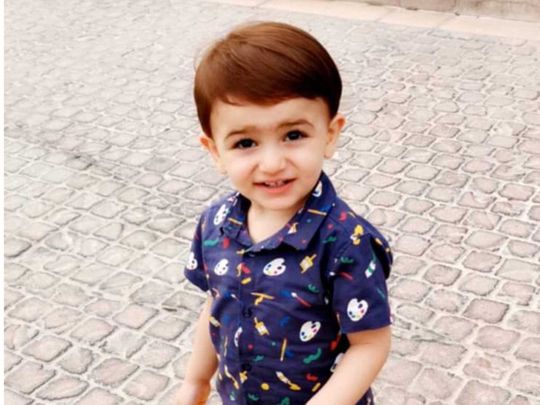
Abu Dhabi: An Al Ain resident has accused two private hospitals of negligence following the death of his two-year-old son, Kareem.
“The first hospital was unable to provide adequate treatment for my son, but they admitted him for four days, which worsened his condition. On the hospital’s recommendation, I then tried to admit Kareem at a second facility, but this facility refused to admit him because his insurance plan did not include the hospital,” Alaa Rawajbi, 35, an engineer from Jordan, told Gulf News.
Following the incident, Rawajbi approached the Abu Dhabi Department of Health (DoH), the emirate’s health sector regulator, which is now investigating the case.
According to Rawajbi, his son had been suffering from a high fever on October 8, and was admitted at a private hospital for monitoring and treatment. He was given IV antibiotics, and hospitalised for four days.
“My son did not respond to the treatment, and after four days, I was advised to take Kareem to another private hospital with better expertise and equipment. The doctors said they had already discussed the case with the second hospital, and that I should transfer him,” Rawajbi said.
The father said he paid Dh500 for an initial consultation for his son at the second hospital, and was told there that his son was very unwell.
“I was told that he had a very severe bacterial infection and was septic, and that he needed at least five more days of IV antibiotics to clear the infection. But Kareem was not admitted because his insurance plan did not include the hospital. So I approached the account department at the facility,” Rawajbi said.
There, Rawajbi was given the option of paying Dh10,000 upfront to have his son admitted.
“I only had Dh2,000 with me at the time, and I offered this as an initial payment, saying I would arrange for the rest of the money. But the hospital still did not admit Kareem. By this time, it was already 7PM in the evening,” Rawajbi said.
Seeing his son’s worsening condition, Rawajbi then rushed him to a public hospital.
“The doctors there ran tests, and informed us of the fatal diagnosis. The infection had already reached Kareem’s heart and the heart muscle was failing,” the father recalled.
Kareem passed away after midnight on October 13, a mere few hours after he was refused admission at the second private hospital, Rawajbi said.
“I want the DoH to look into the matter and give me my rights, especially if there was negligence involved. If the first hospital had told me in the beginning that it was not equipped to treat Kareem, I would have immediately taken him elsewhere. And why did the second hospital refuse to even admit my son when his condition was so dire,” Rawajbi said. He and his wife have another seven-month-old son.
Both hospitals are long-standing institutions in Al Ain, and the facility that did not admit Kareem is one of the oldest hospitals in the city.
A source at the DoH told Gulf News that the case is now under investigation by the Public Prosecution, and that a medical committee has been formed to consult on it.
Patient rights
According to the Abu Dhabi Department of Health’s 2008 charter on Patient Rights and Responsibilities, patients have the right to “receive treatment in an emergency situation regardless of the state of [their] insurance card.












